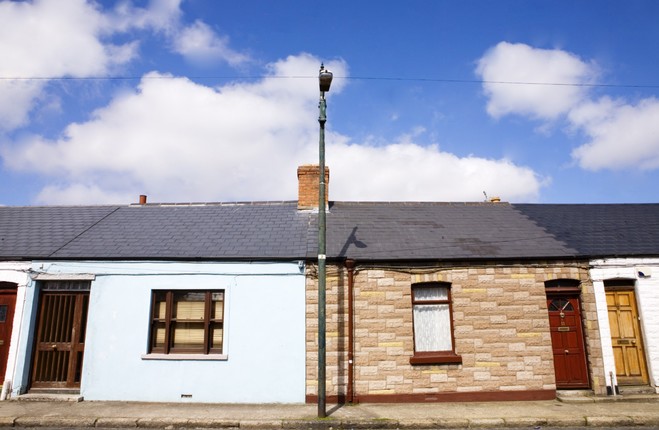SO YOU’RE JUST starting to save towards a deposit. How long is it going to take?
Well, that really depends on the individual or couple, says mortgage broker Gerry Hiney, director of Park Financial – but two or three years isn’t out of the ordinary. “Everyone’s different – but if you came to me in the morning and said ‘I want to buy a property, but I have no savings’? Well, if you can afford to save €1,000 a month, it’s going to take you three years unless you’ve got a gift, to save an average deposit of €36,000.”
The first step on your savings journey is to get a sense of the price of a property you’d want to buy, so that you can decide the target for savings. “To cover fees and surveyors, a good guide is that the first time buyer would need to have 12% of the cost of the property,” says Hiney.
One way to press fast forward on your savings process is to apply for the Help to Buy rebate scheme. “For people who would be struggling on savings, the Help to Buy is a godsend because the lenders allow it to be used for the deposit,” says Hiney. “You could get up to €30,000.” Finding out how much you qualify for is free via a quick online application, and the rebate amount is determined by how much tax you have contributed in the last four years.
Once you’re getting close to that savings target, says Hiney, you should start really thinking about how your expenditure will look to a bank. “In the six months prior to the mortgage application, you need to make sure your accounts are clean as possible,” he says. “Keep out of overdraft, no online betting or gambling, make sure there’s no cash advances on a credit card, and no direct debits returned for lack of funds.”
With six months of clean accounts and a 12% deposit saved, you’re ready to put in mortgage applications. “From the time we get your application in order to the time we’d get it back from the bank, it’s taking up to three weeks,” Hiney says.
A variable most first-time buyers who are purchasing second-hand homes can expect is the bidding process. “It happens in most cases,” says Hiney, so he suggests waiting until viewings have finished for the property before putting in an offer. “Wait until they’ve done all the viewings, they won’t sell it until they’ve done all the viewings. Then you decide what’s your limit. You just write that down, that’s your limit. And you don’t go over it.” Back-and-forth communication can be expected during the bidding process, but it usually happens quickly. “So before the bidding starts, you need to draw the line in the sand.”
At Glenveagh Homes, our vision is that everyone should have the opportunity to access great-value, high-quality homes in flourishing communities across Ireland. We understand that buying a home is possibly the biggest decision you will ever make in your life – but we want to make it your easiest. Click here to find out more about Glenveagh developments.


